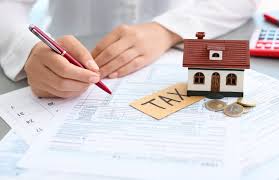Property taxes are an important, often overlooked expense for homeowners and real estate investors. Understanding how property taxes work and planning for them is essential to avoid surprises and manage your finances effectively. Whether you’re buying your first home or expanding your investment portfolio, here’s what you need to know about property taxes and how to plan ahead.
What Are Property Taxes?
Property taxes are local taxes assessed by city, county, or municipal governments based on the value of your property. They help fund essential public services such as schools, police and fire departments, road maintenance, and public parks. The amount you pay depends on your property’s assessed value and the local tax rate (also called the mill rate).
How Are Property Taxes Calculated?
The general formula for property tax is:
Property Tax = Assessed Property Value × Tax Rate
- Assessed Property Value is determined by a local assessor who estimates your property’s market value periodically.
- Tax Rate is expressed as a percentage or mills (1 mill = $1 per $1,000 of assessed value) set by your local government.
For example, if your home is assessed at $300,000 and your tax rate is 1.5%, your annual property tax bill would be $4,500.
When Are Property Taxes Due?
Property tax payment schedules vary by location. Some areas require annual payments, while others divide the bill into semi-annual or quarterly installments. Be sure to check deadlines to avoid penalties or interest charges.
How to Plan for Property Taxes
- Include Property Taxes in Your Budget: Factor property taxes into your monthly housing expenses to avoid surprises.
- Escrow Accounts: Many mortgage lenders collect property taxes monthly as part of your mortgage payment and hold the money in an escrow account. They then pay your property tax bill on your behalf.
- Appeal Your Assessment: If you believe your property’s assessed value is too high, you can often appeal with your local assessor’s office. Providing evidence like recent comparable sales can lower your tax bill.
- Stay Informed About Tax Changes: Local governments can adjust tax rates or reassess properties. Stay updated to anticipate changes.
Conclusion
Property taxes are a fixed cost of homeownership that can impact your overall budget. By understanding how they work and planning for them, you can manage your finances more effectively and avoid surprises. If you’re unsure about your property tax situation, consult with a local tax professional or real estate expert.
